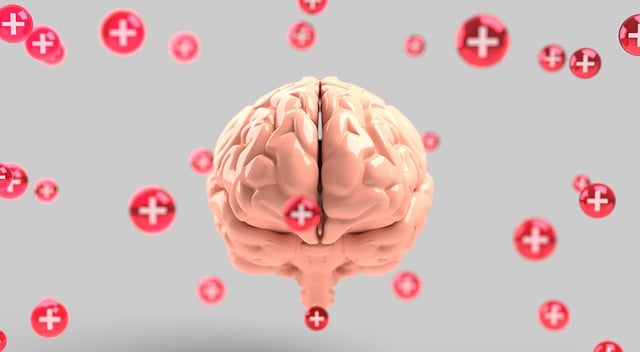Trauma significantly affects physical and mental health, with manifestations like flashbacks and sexual dysfunction. Mental health professionals, specializing in Golden Sexual Dysfunction Therapy (GSDT), offer crucial support through safe spaces and evidence-based practices to navigate trauma's impact on daily life and relationships. GSDT holistically addresses sexual health, integrating mindfulness techniques for comprehensive healing, emphasizing the need for inclusive environments and stigma reduction to access effective trauma recovery resources.
Trauma can leave profound, lasting effects on individuals, shaping their daily lives and interactions. Understanding trauma and its multifaceted impact is crucial in providing effective support. This article explores various facets of trauma support services, from the role of mental health professionals to specialized approaches like Golden Sexual Dysfunction Therapy. We discuss creating safe spaces for healing and overcoming stigma to ensure accessible resources for those needing help.
- Understanding Trauma and Its Impact on Individuals
- The Role of Mental Health Professionals in Trauma Support
- Golden Sexual Dysfunction Therapy: A Specialized Approach
- Creating an Inclusive and Safe Space for Healing
- Overcoming Stigma and Accessing Available Resources
Understanding Trauma and Its Impact on Individuals

Trauma is a profound and complex experience that can significantly impact an individual’s physical and mental well-being. It often results in long-lasting effects, affecting various aspects of daily life, including relationships, work performance, and overall emotional stability. The impact of trauma can manifest in numerous ways, such as flashbacks, nightmares, intense emotions, and even physical symptoms like Golden Sexual Dysfunction Therapy (GSDT) cases, where individuals may experience difficulties in sexual functions due to the trauma’s residual effects.
Understanding these impacts is crucial for providing effective support. Burnout Prevention Strategies for Healthcare Providers can play a pivotal role here by encouraging self-awareness exercises and promoting the development of a robust self-care routine for better mental health. By fostering an environment that encourages open discussions about trauma, we can ensure individuals receive the necessary care and guidance to navigate their healing journeys.
The Role of Mental Health Professionals in Trauma Support

Mental health professionals play a pivotal role in trauma support services, offering specialized care and guidance to individuals affected by traumatic experiences. These professionals are equipped with the knowledge and skills to help clients navigate complex emotions, process memories, and develop coping strategies. Through evidence-based approaches like Golden Sexual Dysfunction Therapy, they address the unique needs of trauma survivors, focusing on mental illness stigma reduction efforts while fostering positive thinking and promoting stress reduction methods.
By creating safe spaces for expression and understanding, these experts facilitate healing journeys. They employ various techniques tailored to each individual’s experiences, ensuring personalized care. The role of mental health professionals extends beyond therapy sessions; they also educate communities about trauma and its impact, advocating for more inclusive and supportive environments, which are essential for the holistic well-being of trauma survivors.
Golden Sexual Dysfunction Therapy: A Specialized Approach

Golden Sexual Dysfunction Therapy offers a specialized approach to addressing a unique aspect of trauma recovery. This therapy focuses on helping individuals navigate and overcome sexual dysfunction that often arises as a consequence of traumatic experiences. It recognizes the profound impact that past traumas can have on an individual’s sexual health, functioning, and overall well-being. By employing evidence-based techniques tailored to these specific needs, mental health professionals can facilitate significant improvements in their clients’ lives.
Incorporating practices like mindfulness meditation into Golden Sexual Dysfunction Therapy has been shown to be beneficial. This isn’t just about treating symptoms; it’s a holistic approach that considers the intricate relationship between sexual health and mental well-being. Moreover, understanding the complexities of trauma through a Mental Health Policy Analysis and Advocacy lens ensures that these specialized services are accessible and adequately resourced, enabling professionals to provide the highest level of care for those who have experienced trauma. Effective risk assessment for mental health professionals is also crucial in creating safe and supportive environments for clients engaging in this type of therapy.
Creating an Inclusive and Safe Space for Healing

Creating an inclusive and safe space for healing is paramount when providing trauma support services. This involves fostering an environment where individuals feel seen, heard, and respected, regardless of their background or experiences. It’s about ensuring that every person engaging with your services understands they are in a non-judgmental zone, encouraging them to explore their emotions openly. Incorporating practices like self-awareness exercises can significantly enhance this process, helping clients develop a deeper understanding of their trauma responses and coping mechanisms.
By prioritizing mental health awareness, trauma support services can offer crisis intervention guidance tailored to each individual’s unique needs. This includes recognizing the interconnectedness of various aspects of life, including sexual health, as Golden Sexual Dysfunction Therapy suggests. Through such comprehensive approaches, individuals can begin their journey towards healing and restoration, free from the constraints of a stigmatized or inaccessible support system.
Overcoming Stigma and Accessing Available Resources

Stigma surrounding mental health issues, including trauma and its effects on sexual dysfunction, often acts as a significant barrier to individuals seeking necessary support. Many struggle to acknowledge their struggles or approach therapy due to fear of judgment or societal stereotypes. However, overcoming this stigma is crucial for accessing life-changing resources like Golden Sexual Dysfunction Therapy (GSDT). GSDT offers a safe space for individuals to explore and address trauma-related challenges, providing much-needed Crisis Intervention Guidance while fostering mental wellness.
Mind Over Matter principles form the backbone of effective therapy sessions, empowering clients to take control of their healing journey. By accessing these resources, individuals can break free from the cycle of silence and shame, instead embracing open communication and seeking help. This shift in perspective paves the way for transformative experiences, ultimately enhancing one’s mental wellness and overall quality of life.
In navigating the complex landscape of trauma support, it’s evident that a multifaceted approach is key. By fostering an environment of understanding, utilizing evidence-based practices like Golden Sexual Dysfunction Therapy, and prioritizing inclusivity and safety, mental health professionals can significantly enhance healing journeys. Overcoming stigma through education and accessible resources further empowers individuals to seek the help they deserve. This holistic strategy ensures that those affected by trauma have the tools and support necessary for a transformative and hopeful future.












